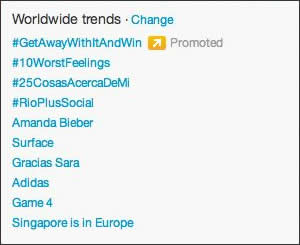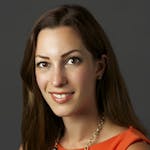 After months of hard work and planning, I took my seat Tuesday morning in the Rio+Social audience, plugged in my computer, my phone, and my other phone, opened up all of my social media channels, and waited anxiously for the program to begin.
After months of hard work and planning, I took my seat Tuesday morning in the Rio+Social audience, plugged in my computer, my phone, and my other phone, opened up all of my social media channels, and waited anxiously for the program to begin.
As others took their seats and plugged in, I witnessed first-hand a connection between those in the room and the thousands of tweets that began to stream in with the hashtag #RioPlusSocial. From prominent figures, like Leonardo DiCaprio, to concerned global citizens, tweets came in from around the world, creating a global conversation. From United Nations Secretary-General Ban Ki-moon encouraging the world to come together from the @UN handle (“we need to connect #RioPlusSocial”) to others who sent in tweets such as @TmsRuge (“Apart from the need to use our 2 ears to listen as much as we talk, we need to use our feet & hands for twice the action #rioplussocial”), the Rio+Social conversation focused on how to build the future we want.
Sitting in the audience listening, reading tweets, and sending out my own, one key theme that was woven throughout the day: this generation can change the world. Muhammad Yunus further reinforced this theme with his words, “This young generation is the most powerful generation in all our history because of technology.”
Technology is the difference between the Earth Summit in 1992 and Rio+20 in 2012. Social media is the tool that connects us instantly as one world. Rio+Social is about the nexus between technological innovation, social media, and sustainable development. Following the conversation in the room and online, I could see how technology makes us the most powerful generation. And then something magical happened. About one hour into the event, the promise of combining the power of social media with the significance of a global conference on sustainability was realized as the #RioPlusSocial hashtag trended globally on Twitter. In other words, Rio+Social became a top-10 topic of conversation in social media on the planet. Yes, I was in the room, but more importantly, I was discussing with thousands of other participants the most important, most written about, of all global conversations.
The people of the world were truly speaking, or maybe I should say tweeting. They tweeted and contributed questions for our panelists. And through live streaming, everyone had a front-row seat for the intersection between government representatives and their citizens, social media pioneers and corporate social good catalysts, foundations, celebrities, Nobel Peace Prize winners, and UN leaders who all joined the Rio+Social conversation with a shared goal: to use social media and its boundless reach to create solutions for pressing global challenges such as access to energy, affordable health care, a clean and safe environment, and education.
With social networking connecting us all such that we can crowdsource to create solutions, Leonardo Tristão of Facebook Latin America implored, “Redes sociais devem contar a nossa história, as fronteiras são substituídas por conexões” or “social networks should tell our story, borders are replaced by connections.” Rio+Social demonstrated that social media knows no boundaries; it opens the conversation to anyone who wants to participate and empowers everyone to converse with fellow citizens and demand accountability for the future we all want.
Thousands of people from around the world spoke on June 19, and what they declared was obvious: the future of our planet demands action now, and social media is an important tool, both for ensuring that effective solutions are implemented and for empowering us all to help make our world better.
The global conversation we had at Rio+Social was a start, but what does it mean for our future? Severn Suzuki said it best during her delivery of the crowdsourced 6-Minute Speech, “You don’t need a fancy title or huge sums of money to make a difference — you have a voice, now use it.” We must continue the conversation; we have the power to write, to tweet, to lobby, to reach media, to take initiative in our own backyards and organize projects to help the environment in our own communities. As Richard Branson of Virgin said, “There is no planet B, we must take care of the one we have.”
We must not wait for others to make the change; we must work collectively now to create the future we want.



 View All Blog Posts
View All Blog Posts